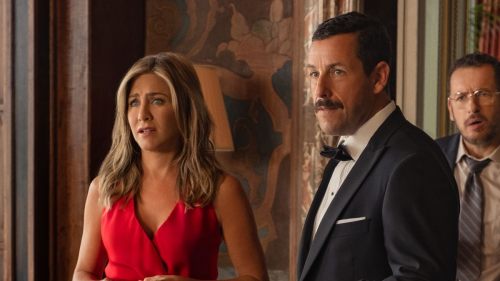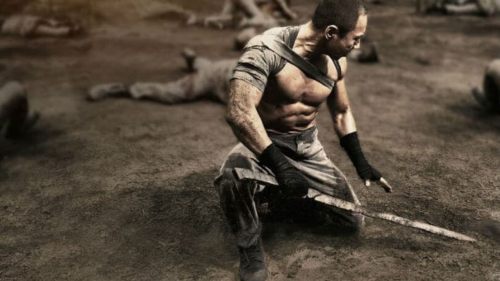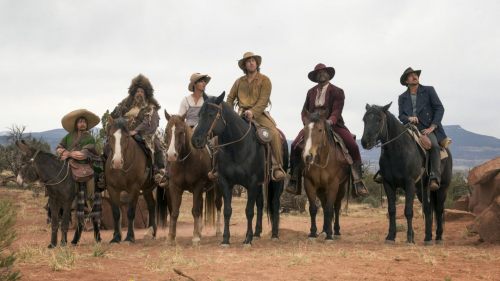In DISENCHANTMENT It’s Happily Ever…Whatever
How in the Smithers do you follow The Simpsons? The question has followed creator Matt Groening in the wake of one of the biggest television hits of all time. Rather than flooding television with every idea in his notebook, Groening’s output has been sparse. Eventually, Futurama answered the question and excelled by poking fun at science fiction clichés and tropes in its own weird way. With the pressure off, Disenchantment, Groening’s new series from the magical kingdom of Netflix, has the benefit of not being the direct follow-up to The Simpsons. But even with its fair amount of wiggle room, Disenchantment is far too sluggish for its own good.
The show is set in the medieval fantasy kingdom of Dreamland, ruled by King Zog (John DiMaggio) who is trying to marry off his rebellious, alcoholic daughter, Princess Bean (Abbi Jacobson). The Princess defies her father and sets off on a series of misadventures with a demon, Luci (Eric Andre), and a wayward elf named Elfo (Nat Faxon).
Let Elfo the elf be a warning about the creative limits of Disenchantment. Sometimes the most obvious choice is the best one, but it’s an example of how the series often lacks the creative spark Dreamland presents. Often, Disenchantment feels like a lethargic game of Dungeons and Dragons.
Princess Bean, Luci and Elfo are our guides through the fantastical world, and a big part of the plot is navigating a kingdom that’s underwhelming when magic and fantastical creatures are everywhere. Princess Bean slowly discovers Dreamland is a little overrated and she’s driven to drink, which works nicely in contrast with the optimist, Elfo, who is away from his bizarre, Smurf-like village for the first time. And it’s all underlined by the cynic, Luci, who is there to be entertained by the antics of his new buddies with a cigarette in hand. These characters are tolerable companions in Dreamland but they never feel clearly defined beyond three different personality traits.
There are pockets of Dreamland where Disenchantment comes alive and it gets the fusion of comedy and fantasy right, including excellent sight gags on signage throughout the kingdom, running jokes that poke fun at Game of Thrones, and oddball side-characters such as street-smart fairies, wizards in Eyes Wide Shutstyle sex cults and dumb barbarians. The further you get into the series, the sillier Dreamland becomes even if the joke-hit rate is scattered. At times it’s reminiscent of Monty Python and the Holy Grail and The Princess Bride, but it’s also similar to Your Highness a lot too.
The main voice cast doesn’t leave a memorable mark on their characters but Groening’s reliable stable of voice actions from previous projects like DiMaggio (Bender from Futurama), Billy West (Fry, Professor Farnsworth, Dr. Zoidberg and Zapp Brannigan from Futurama), Maurice LaMarche (Kif Kroker from Futurama) and Tress MacNeille (Agnes Skinner and Cookie Kwan on The Simpsons) make the minor characters the most memorable. Hearing these voices provides comfort when Disenchantment falters. Groening’s animation style works in a similar way: the eyes drawn like billiard balls, the overbite of the mouth and wild hair colours. Anything Groening works on is always going to evoke the fondness we have for his most iconic cartoon but it works overtime in Disenchantment to win affection.
Disenchantment is an exercise in tolerating something that looks and sounds familiar but is already beginning to wither. Quality adult animation is in abundance right now: BoJack Horseman, Bob’s Burgers, Archer, Rick and Morty, and even the acid trip of Adventure Time have taken television animation to new heights of creativity and emotional power. Groening was once at the forefront of animation in prime time but with Disenchantment he’s trailing behind the pack.



